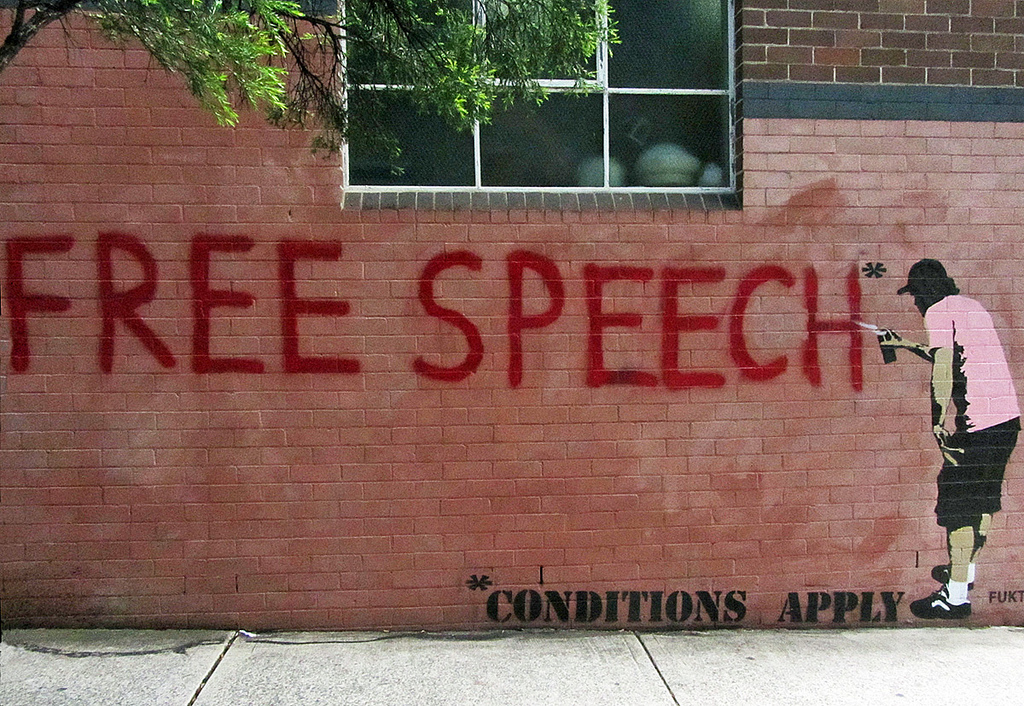In recent years, social media has diverged from its initial intended purpose – transforming a network of connections between individuals into hugely popular online platforms for discussion. Political and social discourse is no longer limited to parliaments and college debating societies. Twitter “hot takes” and Facebook comment sections have provided fertile soil for arguments and clashes of conflicting opinions, quickly triggering interesting questions about free speech, and in turn hate speech, and where to draw the line between the two.
This debate was recently exemplified in Geert Wilders’ announcement of his cartoon contest and the backlash that consequently emerged, on the internet and beyond. Wilders is a far-right Dutch politician known for his extreme anti-immigrant, nationalist, and Islamophobic views. On May 17, he announced that a Prophet Muhammad cartoon competition would be held in the Dutch parliament in November, with the winning images hung up in the office of Wilders’ Party for Freedom in the parliament building.
Wilders’ contest sparked an international scandal and worldwide protests. Physical depictions of Allah or the Prophet Muhammed are strictly forbidden by Islam and deeply offensive to many Muslims – something Wilders was well aware of and wanted to exploit, given the poster advertising the contest stated: “You can’t draw me / That’s why I draw you.” What the Dutch right attempted to excuse as “satire” was, in reality, an Islamophobic act of intentional provocation.
The question must be asked: what exactly constitutes as satire?
The Oxford English Dictionary defines “satire” as “the use of humour, irony, exaggeration, or ridicule to expose and criticise stupidity or vices of others, particularly in the context of contemporary politics and other topical issues”. Personally, I find that definition quite comprehensible with little room for ambiguity, but apparently some disagree. The Piranha being an example.
The Piranha, a “satirical” campus publication, describes itself as “a low effort, low blow, smear satire newspaper”. Albeit presumably a joke, this statement became literal and wholly truthful with their latest issue. The “Fresher’s Edition” of the publication featured a “What’s Hot/What’s Not” article. “Gays” were listed under the “hot” section, followed by descriptions of physically tormenting a gay man embellished into a colourful array of insults. Alongside referring to gay men as “limp wristed arse bandit[s]” and “turd burglar[s]”, the Piranha proceeded to reduce the community to their sexual lives and trivialise homophobia.
The “not” section was equally questionable, listing “povert-unistic bragging” and “abortions” in the category. The descriptions were exactly as bad as you would expect. Another article included the quote, “in a pleasant twist for fundementalists [sic] everywhere, fags really are responsible for the decline of nature”.
It seems as if the authors of the Piranha missed the postscript at the end of whatever WikiHow “how to write satire” article taught them to write. Hateful speech does not become satire just because you label it as such. You cannot excuse the slander and abuse of a vulnerable subgroup of society by claiming that the genre you attempt to fall under allows for it.
Satire is more than just another form of mockery or ridicule. It does not exist as a medium through which to spread one’s hateful, bigoted opinions or to assault a minority. It does not give you a free pass to be “edgy” or “politically incorrect” in the hopes of impressing your right-wing friends. Your opinions are still hateful, slurs are still vile, and you still are not funny. Slapping the label of “satire” onto your abuse does not change any of that, and if you believe that is the case, you are further from producing good satire than The Burkean Journal.
Satire is a powerful weapon with a clearly defined purpose. It exists to highlight and indirectly criticise a topical, political or social problem through the media of irony and humour. It seeks to spark debate and encourage critical thinking, whilst providing comic relief in what can often be a time of societal distress. Unless the writers of The Piranha consider the existence and success of LGBT+ people in Trinity and the acceptance thereof to be a social problem, they have wholly failed to fulfil that purpose.
Likewise, Wilders’ competition was nowhere near satirical, but was purely Islamophobic and clearly intended to provoke, alienate, and upset the Muslim population of Holland. Wilders’ supporters have presented him as a martyr for free speech and accused his critics of violating this freedom. This is not the case, and by claiming so, they are overlooking something fundamental.
Free speech is not absolute. Granted, you are entitled to freedom of speech, but under certain key limitations; and while this may sound like an oxymoron, these limitations are necessary to ensure that the exploitation of the right to free speech does not infringe upon other human rights of targeted individuals. This would have been the case were the competition to take place, and as such, it ought to have been cancelled.
Similarly, the Piranha issue ought to have been redacted. Allowing it to be published in the first place was negligent on the part of the editor, and Trinity Publications’ failure to respond to it thus far is inexcusable.
Hateful “satire” is not satire, and those who produce it are not satirists. They are merely desperate for an excuse to spout their hatred and bigotry, and will jump onto anything that offers one. Any protest they evoke is well-deserved, whereas censorship of their “satire” is not only justifiable but necessary. This is not censorship for the sake of censorship or millennials’ “Special Snowflake” complex. It is necessary to ensure that the genre of satire continues to fulfill its vital aim of critiquing the status quo. Satire’s ability to highlight current societal and political problems is invaluable, but only insofar as it does not contribute to their persistence.






